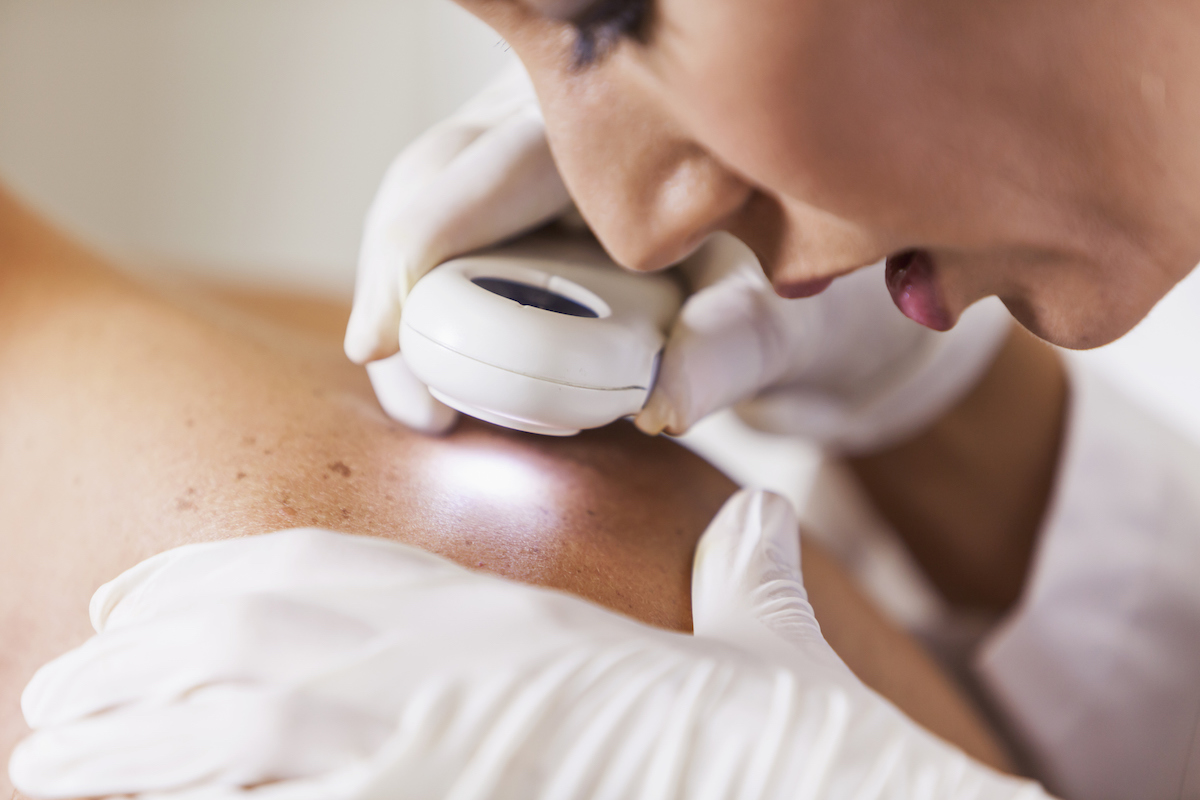<< Back
Hartford HealthCare Opens Melanoma and Skin Cancer Center

May 24, 2021
While the least common form of skin cancer, melanoma is the most deadly, making quick and advanced care critical. To fill that void locally, the Hartford HealthCare Cancer Institute has created the Melanoma and Skin Cancer Center.
“With the summer starting, and to recognize National Skin Cancer Awareness Month in May, it’s important for people to check their skin regularly for anything that looks like it’s changed shape, color or size,” said Dr. Dean George, a cutaneous melanoma specialist and part of the team at the new Center. “Bring concerns to your primary care provider or dermatologist, and we are now here if the situation is advanced and more serious.”
The first of its kind in the area, the Center draws together multidisciplinary teams of doctors with expertise in dermatology, dermopathology, surgical oncology, medical oncology, radiation oncology, otolaryngology and facial plastic surgery. Together, they develop individualized, patient-centered treatment plans that ensure the highest quality of care.
“This team brings the full scope of expertise to bear on every single case, and, perhaps most importantly, we ensure rapid access for people with suspicious lesions because we know how quickly melanoma can advance,” said Dr. Omar Eton, a medical oncologist and medical director of the Melanoma and Skin Cancer Center.
The Melanoma and Skin Cancer Center also draws on the advanced training of Dr. George in cutaneous oncology and oncodermatology and Dr. Scott Walter, an ocular oncology specialist who can address any melanomas of the eye.
Melanoma and Skin Cancer Center teams focus on the evaluation and treatment of:
- Melanoma and complex pigmented lesions.
- Cutaneous T-cell lymphoma, or cancer that develops in skin’s pigment cells.
- High-risk, non-melanoma skin cancer.
Patients have access to a full range of treatment options including surgical care, radiation therapy, chemotherapy and immunotherapy. Other factors differentiating the Melanoma and Skin Cancer Center from other programs include:
- Targeted treatment guided by results from next-generation sequencing and immunostaining of tumors.
- Pioneering clinical trials providing early access to promising new therapies in Hartford HealthCare’s state-of-the-art Cancer Care Innovation Unit.
- Access to Memorial Sloan Kettering through the system’s membership in the MSK Cancer Alliance.
There are teams in four locations covering the entire state – Fairfield County, Hartford, Central and Eastern Connecticut. From the first phone call, patient care is coordinated by a dedicated patient navigator who is trained to guide patients and families throughout the treatment process.
One in five Americans will develop some form of skin cancer or melanoma in their lifetime. The best protection is regular and frequent application of sunscreen with an SPF factor of at least 30, avoiding the sun during peak hours of the day (10 a.m. to 2 p.m.), and wearing sun-protective clothing.
People, Dr. George said, should check themselves for signs of skin cancer, including:
- Any change – particularly size or color – of a spot, growth or mole.
- Sores that never heal.
- Oozing, bleeding or scaliness.
- Color that spreads beyond the borders of a growth.
- Tenderness, itching, pain or other new sensations.
“Many changes are actually in hard-to-see spots on the body, so people should check their partners regularly, too,” Dr. George said.
For more information or an appointment with the one of the Melanoma and Skin Cancer Center teams, contact Jason Proulx, nurse navigator, at 860.972.5808 or [email protected].